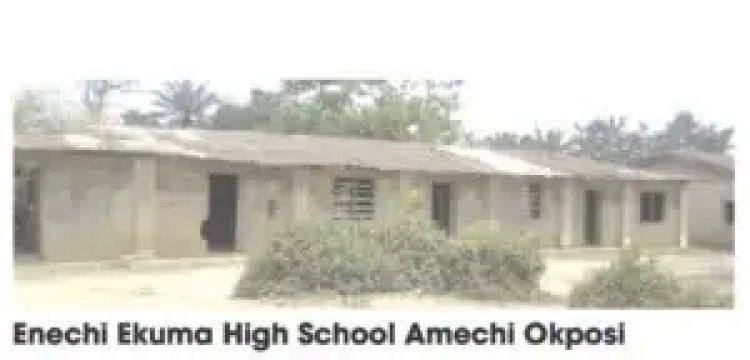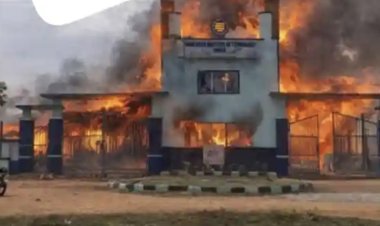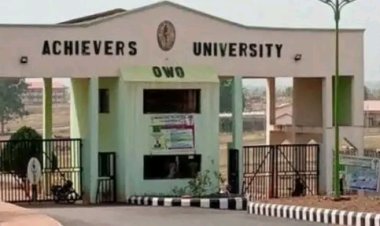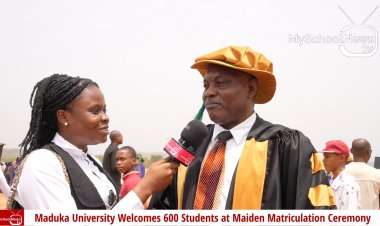Ebonyi State Takes Lead in Southern Nigeria with 3,000 Teacher-Gap and Highest Number of Out-of-School Children
Education Crisis in Ebonyi State Schools

In a disheartening revelation, a recent study has exposed the acute shortage of teachers in Ebonyi State, placing it at the forefront of educational challenges in southern Nigeria. With a staggering gap of approximately 3,000 teachers, the state bears the unenviable title of having the highest number of out-of-school children in the region.
Parents, grappling with the dire situation, have taken matters into their own hands, seeking alternative solutions to ensure their children receive a basic education. One poignant example is the migration of students from Mgbalukwu Isu, in Onicha Local Government Area of Ebonyi State, to neighboring Nara in Enugu State, a few kilometers away. The sorry state of community primary schools, left desolate due to the absence of teachers, has forced parents to prioritize quality education over proximity.
Chief Sunny-Bright Chukwu, a prominent indigene of the area, shed light on the crisis, revealing that he took it upon himself to engage auxiliary teachers in 2017 to revive Mgbalaukwu Isu Primary School. Despite the modest improvement, the government has not intervened, leaving the school reliant on community efforts for sustenance.
The dire situation is not limited to Mgbalaukwu Isu alone; several schools across Ebonyi State face similar challenges. Shockingly, there has been no recruitment of teachers into the state’s basic education system for over a decade. In a state with 1,010 public primary schools catering to 231,012 pupils and 7,988 teachers, the teacher-to-pupil ratio of 1:35 falls far short of the ideal 1:25 ratio.
The rural schools bear the brunt of the teacher shortage, with some primary schools in rural communities boasting less than four teachers. This alarming trend prompted stakeholders, including government officials, traditional leaders, faith-based organizations, and civil society groups, to convene for a policy dialogue on June 15, 2022. The meeting, organized by the USAID State Accountability, Effectiveness, and Transparency in Ebonyi in collaboration with the State Universal Basic Education Board (UBEB) and the Technology for Transformative Development Foundation (TTD), sought to address the issues arising from a baseline assessment of primary schools in the state.
Francis Egwu, the Chairman of the National Union of Teachers (NUT) in Ebonyi State, attributed the severe teacher shortage to the government's failure to replace those who left the service. Meanwhile, the then Principal Secretary to the Ebonyi State Governor, Chief Emmanuel Obasi, argued that the problem lies not in the total number of teachers but in their uneven distribution between urban and rural schools.
RECOMMENDED: EBONYI AIDE TO EBONYI STUDENTS: Shun Cultism, Shun Indecent Dressing
Dr. Ritamary Okoro, the State Head of Service, acknowledged the challenges identified in the baseline assessment and emphasized the need for continuous teacher recruitment, provision of learning materials, and the development of a state basic education strategy. However, she highlighted the importance of addressing corruption in the teacher supervision system for effective change.
In a bid to revitalize the education sector, the USAID project launched a baseline assessment of 327 primary schools in the state on January 27, 2022. The assessment identified key issues such as teacher recruitment, school supervision, provision of learning materials, and the need for a basic education strategy.
Despite these efforts, the deplorable state of basic education in Ebonyi State persists, with pupils sometimes forced to sit on bare floors or under mango trees within school premises. The situation has prompted concerned individuals, groups, and communities to contribute to education development at the basic level. While the state government assures its commitment to addressing these challenges, stakeholders emphasize the urgent need for comprehensive intervention to avert a looming crisis in the future of Ebonyi pupils.

 Mary Nwaeze
Mary Nwaeze 



